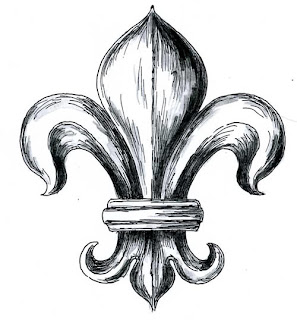Now I'm thinking of some other confusing language things: the dreaded faux amis!
That means "false friends" in French, and means words that look the
same or similar in both languages but do not mean the same thing. There
are literally hundreds of these but I'll just go for a few of the more
common ones.
Cabinet/bureau - These two words both mean "office" in French, and while the word office does exist it's not used much.
Raisins - This means "grapes" whereas our "raisins" are raisins secs, or "dried grapes." Similarly prune is "plum" and "prune" is prune sec, or "dried plum."
Magasin - Definitely not a "magazine," this is actually a "store" or can refer to the magazine of a gun.
Marron - While this looks like "maroon," it means "brown," while what we call "maroon" they would call bordeaux (yes, referring to the color of the wine coming from Bordeaux). Brun also means "brown" but marron is used more commonly.
Actuellement - This seems like it should be "actually" but it means "currently," "presently," or "right now."
Attendre - It looks like "attend" but this means "to wait." And to make everything more confusing "to attend" in French is assister, which does not mean "to assist."
Librarie - It's a bookstore, not a library.
Chair - This is "flesh" or "meat" rather than a chair.
Etiquette - We have this exact word in English, but in French it means a label or ticket.
Blesser - Another bad one to get wrong; this doesn't mean "bless" but "to wound/hurt."
Pain - This means "bread," much more pleasant than what it looks like.
There are tons more, maybe I will do another post of just those.
And finally, I'll end with a couple of pronunciation issues that amuse and annoy me, and they go both ways.
The
city of Reims in France is pronounced like "rants," which makes
absolutely no sense, phonetically, in French. It's spelled Rheims in
English, and I don't know why that is, either.
English
speakers like to stereotype French people as always saying "oo la la!"
amongst other things. French people do not say this; they say "oo la!"
as an exclamation of something like "Be
careful!" or "Oh my!" or "I'm about to drop this!" and they say "oh la la" as an expression of mild
disapproval, surprise, or sympathy.
Everyone recognizes this symbol as a fleur-de-lys:
Since moving here I've discovered that it's also legitimately spelled lis
and also that hardly any English speakers (including French teachers)
say it correctly. It's said "'fleur deh LEES" rather than "fleur deh
LEE."
Friday, October 12, 2012
Subscribe to:
Post Comments (Atom)

No comments:
Post a Comment